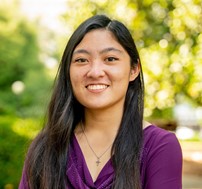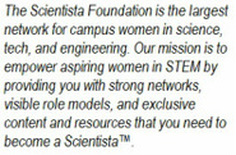|
By Alyssa Quan Credit: Peter Thoeny, Quality HDR Photography, CC BY-NC-SA 2.0 If you’re like me, you are an aspiring researcher in a rigorous academic degree program, sent on a rollercoaster over the past year struggling to incorporate all your brand-new ideas into a project while also trying to move forward with your studies in the middle of a would-be apocalypse. Luckily for us, there are ways to do just that. When COVID-19 first arrived in the U.S. and shut down normal life, I considered myself lucky. I was in my gap year, so online learning was a non-issue at the time, and I did not have to undergo the loss of graduation ceremonies that many of my peers did. I lived with my parents, so I had less to lose in work and expenses. All I had to worry about was getting accepted to a graduate program. And, luckily, I was accepted to and enrolled in the Integrative Conservation Ph.D. program at the University of Georgia. I moved my whole life from Orange County, California across the country to Athens in anticipation of a new adventure. When I arrived, however, I was welcomed by the Southern charms of mobility restrictions and abundant Zoom calls. Building a network is essential when it comes to developing a doctoral dissertation project, but this proved difficult in a socially-distant world. My lab group had no way of travelling for field work or even familiarizing ourselves with the research station. The biggest challenge was trying to find people to mentor me. It was hard enough to get to know people within my department given social restrictions, let alone connect with faculty from other relevant departments. Despite these obstacles, I remained hopeful that the pandemic and lockdown would end, and I could commence my dissertation research sooner or later. It was later. Even with the development of the COVID-19 vaccine, its distribution has been less than speedy. I began my second semester with all my project leads coming up empty due to a lack of funding or lack of mobility or lack of certainty about anything in the future. In the midst of the project search, I still had to balance coursework and teaching at the same time. Pressure was on the rise, and I felt imposter syndrome taking over yet again. I contemplated downscaling my degree program, or just dropping out. I’m sure a lot of you have gone through something similar. This year has definitely been tough, but it’s taught me a lot about perseverance. To help some of you going through the struggles of graduate school, here are some things I’ve learned in quarantine that I think can help you in your research: 1. Don’t think everything will go according to plan. I think we can all agree that a LOT of unexpected things happened to us this past year. Besides the national turmoil, I personally had to find ways to navigate a new school, new town, and new ideas without knowing what to expect. Developing a dissertation is not an easy task, and it becomes even harder if you put all your eggs in one basket. The first project I had lined up is not the same one I’m continuing with, and this will likely be true for you as well. Adaptability is key. We work with complex systems; things are bound to change. The only thing you can control is yourself. 2. Trust your emotions. Not only is this key for your mental and emotional health, but trusting your intuition for the things you are interested in can result in really great ideas. If you are passionate about something, use that passion in your research. If you find yourself disagreeing with your advisor on certain things, that’s ok; make your true desires known. You want to be motivated in the research you do. If you feel discouraged by the direction your project is going in, don’t force it. Give yourself options; don’t be afraid to chase a few different interests you have, even if they seem unrelated. You may be (pleasantly) surprised where they lead you. 3. Get connected and stay connected. Getting to know people from my department and elsewhere during quarantine was especially hard. Since every meeting happened on Zoom, everything had to be formally planned. There were no run-ins on campus or friendly coffee hours in the courtyard. I felt disconnected from people, even if I had been talking to them from the time I arrived. What helped me most was realizing that the people on the other side of the call likely felt similarly. Don’t be afraid to reach out, even if it feels awkward. Make time to get to know the people around you, and let them get to know you. Also, don’t neglect your home network! The pandemic made me learn to rely on and appreciate my community from California. Work is much easier with friends (and friendly colleagues). 4. Pay attention to the outside world. Under lockdown, I paid little heed to anything other than whatever I had going on at the moment. While in school, it’s easy to get caught up in schoolwork and research and meetings; students are busy bees! But we have to remember that there are struggles bigger than ourselves happening all the time. As scientists, it’s our responsibility to speak up on social justice issues, because our work is never purely intellectual. You should always take time to think about what values your work is founded on. We are taught that science should be apolitical, but that’s impossible. If it was, then what would be the purpose of our research? 5. Find some structure. If there’s one thing that everyone seemed to lose universally to the pandemic, it’s a sense of time. I definitely felt my days and weeks running together, even after getting on a regular schedule within the semester. I am not a natural planner, so it took some effort for me to set one up. Build a 1-year, 2-year or 5-year plan. Graduate research takes quite a bit of planning ahead in order to keep from falling behind. Chances are, you’ll start lagging a bit along the way, so it’s best to try to minimize that from the beginning. And remember, don’t worry if your plans change! (See tip #1) I hope these tips help your program run a little more smoothly. The pandemic can be scary and stressful, and so can graduate research. Remember, you got this far, you have what it takes to keep going. It’s ok to rely on other people. Good science requires teamwork and collaboration. You are not an imposter; we all are just running around trying to complete our tasks. In the end, I was able to find a project and team that I’m really excited to be on. That will happen for you too. It’s not the end of the world, it’s just the beginning of yours.
0 Comments
Your comment will be posted after it is approved.
Leave a Reply. |
Education BlogAbout ScientistaSubscribe!NEW!New PostsWhat's HotClick to set custom HTML
You Might Like...
Connect With UsLatest tweets |
The Scientista Foundation, Inc. All Rights Reserved © 2011-2021 | Based in NY | [email protected]
The Network for Pre-Professional Women in Science and Engineering
The Scientista Foundation is a registered 501(c)(3) -- Donate!
The Network for Pre-Professional Women in Science and Engineering
The Scientista Foundation is a registered 501(c)(3) -- Donate!




 RSS Feed
RSS Feed









